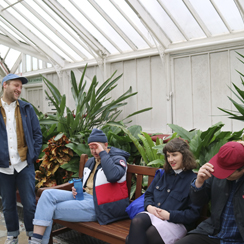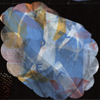
- HOME
- ABOUT
- ARTISTS
A.P.A.T.T. APOSTILLE BAMBOO BARR BERTIE MARSHALL BIRD NAMES BRONTEZ PURNELL BUFFET LUNCH CHESTER ENDERSBY GWAZDA CHOPS CLEAR HISTORY CLECKHUDDERSFAX COLD PUMAS CONSTANT MONGREL DARLENE SHRUGG DEATH SENTENCE: PANDA! DEERHOOF DOG CHOCOLATE DRUM EYES EARTH BALL ED SCHRADER'S MUSIC BEAT ES ESQUILAX FEATURE FOOT VILLAGE FORMER GHOSTS FUTURE ISLANDS GAY AGAINST YOU GARY WAR / PURPLE PILGRIMS GEN POP GENTLE FRIENDLY GOWNS THE GREEN CHILD GUN OUTFIT GUTTERSNIPE HALO HALO HANDLE HANDS ON HEADS HASH REDACTOR HELHESTEN HIGH PLACES HISTORICALLY FUCKED HYGIENE KAPUTT KIT LEOPARD LEG LINDA SMITH / THE SMASHING TIMES LUCKY DRAGONS LUNCH LADY MARCEL WAVE JOHN MAUS ME LOST ME MUNCH MUNCH NAKED ROOMMATE NICFIT NO AGE NO BABIES NORMIL HAWAIIANS NOTS NUMBERS PARSNIP PEEPHOLES PEGA MONSTRO THE PHEROMOANS PHILIP FROBOS PIKACYU-MAKOTO PLEASE PLUG PRIMO! QUINIE RAT COLUMNS RATTLE RAVIOLI ME AWAY RED CHANNEL ROBERT SOTELO ROBERT SOTELO & MARY CURRIE SAUNA YOUTH SCREENSAVER SEASON 2 SHAKE CHAIN SILVER FOX SCHOOL DAMAGE SOFTBOILED EGGIES SOILED MATTRESS & THE SPRINGS SLEEPER AND SNAKE SPIN SPIN THE DOGS SPRAY PAINT THE STICKS TERRY T.I.T.S THE TOADS TRASH KIT TRENCHER VEXX VINTAGE CROP VITAL IDLES WAY THROUGH WATER MACHINE WETDOG THE WHARVES THE WORLD XIU XIU XIU XIU / PARENTHETICAL GIRLS YIKES
- BLOG
- LINKS
- SHOP
- TOURS
- TICKETS
PHOTOS
|
HI RES DOWNLOADS |









|
|
Photos by Edwin Stevens. |
ABOUT VITAL IDLES |
VITAL IDLES for a conglomerate of art outsiders and aesthetes are primitive, whimsically brutal. Sculpting a skeleton from a body already lean, there's a thrilling minimalism that runs through every beat and strum, a sparseness that feeds Jessica Higgins's surreal, oblique vocal delivery all the nourishment it needs. Playing their first shows in Glasgow in 2015 during a summer that never threatened to show up, Vital Idles' origins are closely tied with a tireless underground culture, a culture that informs the band's refusal to take it easy. Matthew Walkerdine, Nick Lynch and Higgins are responsible for Glasgow DIY publishing institution Good Press - an independent volunteer-staffed zine and art book shop - while Guitarist Ruari MacLean's pedigree stretches back to breakneck-indie-pop group Golden Grrrls and the Rose McDowall band. Following two self-released demos and a sold out debut 7", Vital Idles arrived on Upset The Rhythm with 2018's 'Left Hand', a bare manifesto layered with meaning and non-meaning. Now Vital Idles return with a new 7" EP for 2019. Vital Idles have stripped away all extraneous ornamentation to sculpt an incredibly life-like, vibrant pop music completely detourned and re-thought. |
VITAL IDLES RELEASES |

'EP'
Break AUTR118 | 7" EP | 4 tracks | Buy
If there isn't yet a tradition of following a magnificent debut album with a, shoelaces-tightened, excellent mission statement of an EP (one would be forgiven to think that the debut long player was the mission statement already, breaking in on the scene/ry with such unmissable and rarely seen sensory delight, but then upon hearing the subsequently released EP one is tempted to think: "Wow! That debut was truly astonishing but now they are REALLY on a mission!"), well, if this tradition doesn't already exist - and thinking about Young Marble Giants' scene-defining "Final Day" 7", Pylon's absolutely essential "!!" 10" and Carla Dal Forno's recent-yet-already-classic "The Garden" 12" one might argue that this tradition is undoubtedly fully existent (more so: alive and well) - then this self-titled extended play from much beloved Glasgow quartet Vital Idles would surely be a striking argument for the genesis of such a tradition. On the other hand, when taking sides with the many seasoned critics arguing that this tradition has indeed long been established, one might confidently list this effort as a bona fide example of such practice, sharing with the aforementioned not only an astute and accomplished artistic ability but also a sense of minimalist psychedelia that transcends restrictions set by redundant referencialism and grateless genre parameters such as "Post Punk" or "Minimal Pop" (on which the same critics, of course, often disagree).
That being said, ping-ponging from gritty post punk smashes to minimal pop moments and vice versa, Vital Idles' sphere of stripped-down efficiency and sharp personal observation also brings to mind crucially overseen half-chord-wonders Glorious Din as well as antipodean contemporaries like Constant Mongrel (who also had their latest release mastered by the fantastic M. Young), Primo! (who also had their latest release mastered by the fantastic M. Young) and Terry (who also had their latest release mastered by the fantastic M. Young). The EP reveals itself as a steady, hypotenusal rise of intensity and momentum, starting with the hallucinogenic restrain of opener "Break A", building tension throughout the gothic-noise flourishes of "Seconds" and "Rustle Rustle" and culminating in "Careful Extracts", a 2 minute burst of carefree introspection that might as well be the unintentional answer to early career highlight "My Sentiments": "just me and my/ tired ire/ a a a a a a a a a a". In conclusion: Vital Idles' debut was truly astonishing but - wow! - now they are truly on a mission.
Written by David Roeder, January 2019
|

'LEFT HAND'
A PremiseUTR106 | LP | 14 tracks | Buy
Following practice room and bigger-budget recordings with Glasgow engineer Andy Monaghan, Vital Idles took complete control of their debut album, with Edwin Stevens (aka recording artist Irma Vep) providing an outside perspective on the hermetically sealed group's music. Engineered by Stevens and MacLean, 'Left Hand' crackles with a raw, punk approach to writing warped pop songs that don't just talk of disorder but often actively demonstrate it. At the heart of 'Left Hand', the beating pulse in the tool box, is a conflict never resolved. Higgins manages to create dialogues that she narrates both parts of, Dada-ist songs that seem obfuscated by layers of meaning that, when taken on their own terms as evocative mini-worlds, reveal themselves to be pieces that have an internal melancholy and logic. Like Gertrude Stein growing up on Dunedin pop groups, peel away the deliberate awkwardness and 'Left Hand' reveals itself to be a book of complex, literary short stories at pleasing odds with the wired, no-frills melodic thud MacLean, Lynch and Walkerdine serve. At times a perilous journey into the unknown and at others an immensely enjoyable foray into form deconstruction, lyricist Higgins repeatedly builds narratives out of mis-hearings, peons to doing things wrong, sideways-glances at conventional narrative. The delivery tightrope-walks between deadpan epithets and a Smiths-ian pop singing which gives many of the lyrics bite, pathos, and a surprising amount of surrealistic positivity. With Chains' Troggs-ist chug stomping, Higgins flips the symbolism of the Chain into something to be tendered, cared for, is it a warped metaphor for the future, is a chain an aspiration? There's an existential friction at the heart of Cave Raised that sees the narrator attempting escape, perhaps, unsure of themselves, "a poorly appointed project manager who says the best part is bowling around, which is a little like knocking around" that breaks into a melodic reprieve that feels like an unexpectedly romantic pay-off in the middle of "white space," "Let's tread the tides of time, to live it down, we'll stretch these shores of mine to steal away." Like many of Vital Idles songs, it can be read as a mini treatise on the song itself, or enjoyed as a visceral song that never does what you want it to.
Like fellow Glaswegians Life Without Buildings, Vital Idles make the oblique sound essential. On Like Life, Higgins is at her most precarious with straight-up emotion; MacLean's melodic bassline seems to duet with the vocal as it seems, for once, to be straightforwardly vulnerable. After telling us "I don't really care but I could, I should" our narrator begs the listener "Don't leave me at home with all the people I lost and all the things I forgot. For all the people I lost, I care." Whether it's a slip of the artist's mask of distance or a deliberate trick to fool us into caring, we care. It's indicative of the tension in Vital Idles: pop songs unwilling to bend to convention, chart hits in the alternative timeline where Messthetics compilations are Now That's What I Call Music, endlessly inventive linguistics that reveal emotional depth, a dry, punk minimalism able to turn on a dime into a mouldy, witty kitchen sink story narrated by Samuel Beckett. It's a tension that threatens to fall apart into dissonance or resolve into sweetness but thankfully does neither, rather it keeps Vital Idles moving forward, never standing still, never taking it easy.
Written by Michael Kasparis
|
LINKS |
PRESS |
CLASHBBC 6 MUSIC / MARC RILEY SESSIONTHE LINE OF BEST FITRAVEN SINGS THE BLUESALL MUSICTHE 405M MAGAZINECLASHTHE SKINNYLINE OF BEST FITSOUNDS FROM THE OTHER CITYNOISEYTHE LISTIS THIS MUSIC?LOUDER THAN WAR |
VIDEOS |
'SOLID STATES''CHAINS'THE ARTSY VICE SHOW'MY SENTIMENTS' |